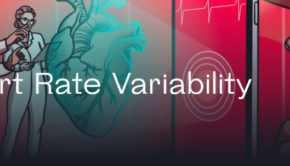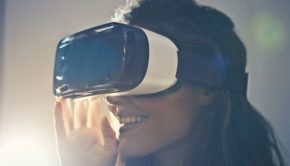Cyber Life: Is Digital Reading Changing Our Brains?
The printed word continues to hold its own ground in the digital era.

A commuter reads on a Kindle e-reader while riding the subway in Cambridge, Mass. Neuroscience says the way his brain treats reading on the Kindle is different than the way the brain processes the newspaper next to him.
With over one billion active websites available, it’s no wonder that much of our reading time takes place via the World Wide Web—and as a result, we are doing such reading off of screens. This fact alone has compelled many researchers to take a closer look into the effects that digital reading is having on our brains, for better or for worse. Here’s what they’ve discovered:
Comprehension is forgone for the sake of time
This lapse in reading comprehension is demonstrated by the fact that readers are averaging at about 500 words per minute while actually deciphering slightly more than a quarter of the words on the page. So what does this mean for the human brain? It shows that there is a shallow level of reading going on which has some grander implications, such as an inability to connect ‘big ideas’ and decreased working memory.
Concentration may be improved
While this may be the opposite of what you’d expect, especially given the endless number of distractions lurking at every corner of the web, concentration skills can actually benefit from reading on the screen. MRI scans have provided some evidence to suggest that our brains are becoming better at sifting through excess information in order to find exactly what we are looking for (and of course, it helps to have technology available to enhance the sifting, like the search feature).
Retention rates are lower
Readers tend to remember less of the content they’ve read online as compared to hard copy books. And while it is unclear of the precise mechanism at play here, other studies have shown that our attitudes toward the delivery method may play a significant role. This is because we tend to approach books with a ready-to-learn attitude, whereas online reading can be more passive and less linear in its absorption.
Navigation is more difficult
Reading a hard-copy book has some clear advantages over online or e-book reading. This includes the ability to recall where in the text something happened, whether it is an event or character introduction. This is because the physical book offers context clues that digital formats do not, such as spatial relation to the front or back covers, or whether it appeared on the left or right page. With this navigation benefit, so too do readers have an improved mental map of the storyline and ability to revisit specific parts.
Computer Vision Syndrome (CVS) is real
Though usually not permanent changes to your brain, ailments like CVS can disrupt your life. Headaches and eyestrain are just two of the common ways that CVS can manifest itself in your head. The symptoms tend to be worse when viewing computer, tablet, or smart phone devices, as opposed to e-readers. The difference is primarily in the way the device reflects light, though usage and posture are also part of the equation. E-readers prevail in this case, as they are made with the reader’s physiology in mind.
Preferences and attitudes cannot be ignored
The experiences that a person will have with any given medium of reading can be influenced by their preferences and attitudes toward them. For some, holding a hard-copy book instills a sense of expectation, familiarity, and rigor. It can be inviting to highlight excerpts and to write in the margins. For others, the compact size and ease of reading in any light will compel them to use an e-reader.
There are a couple points, however, that should also be acknowledged when it comes to determining whether or not digital reading is impacting our brains. The first is that the research that goes into this field is relatively new and sometimes the relevant studies yield conflicting or insignificant results. Screen reading didn’t become popular amongst the masses until the 1990s, and since then the technology itself has come a long way. For this reason it is difficult to draw grander or more definitive conclusions at this point. Furthermore, the research also accounts for all age groups, and they’ve found that age does not influence the findings significantly. So that means that even the generations that have had access to smart technologies from a young age tend to fall within the norm.
About the author:
Sophia Mest is a Content Manager at BizDb, where she aspires to put her writing passion into practice and spread her words across the world. She spends her free time travelling and exploring the wonders of nature.















